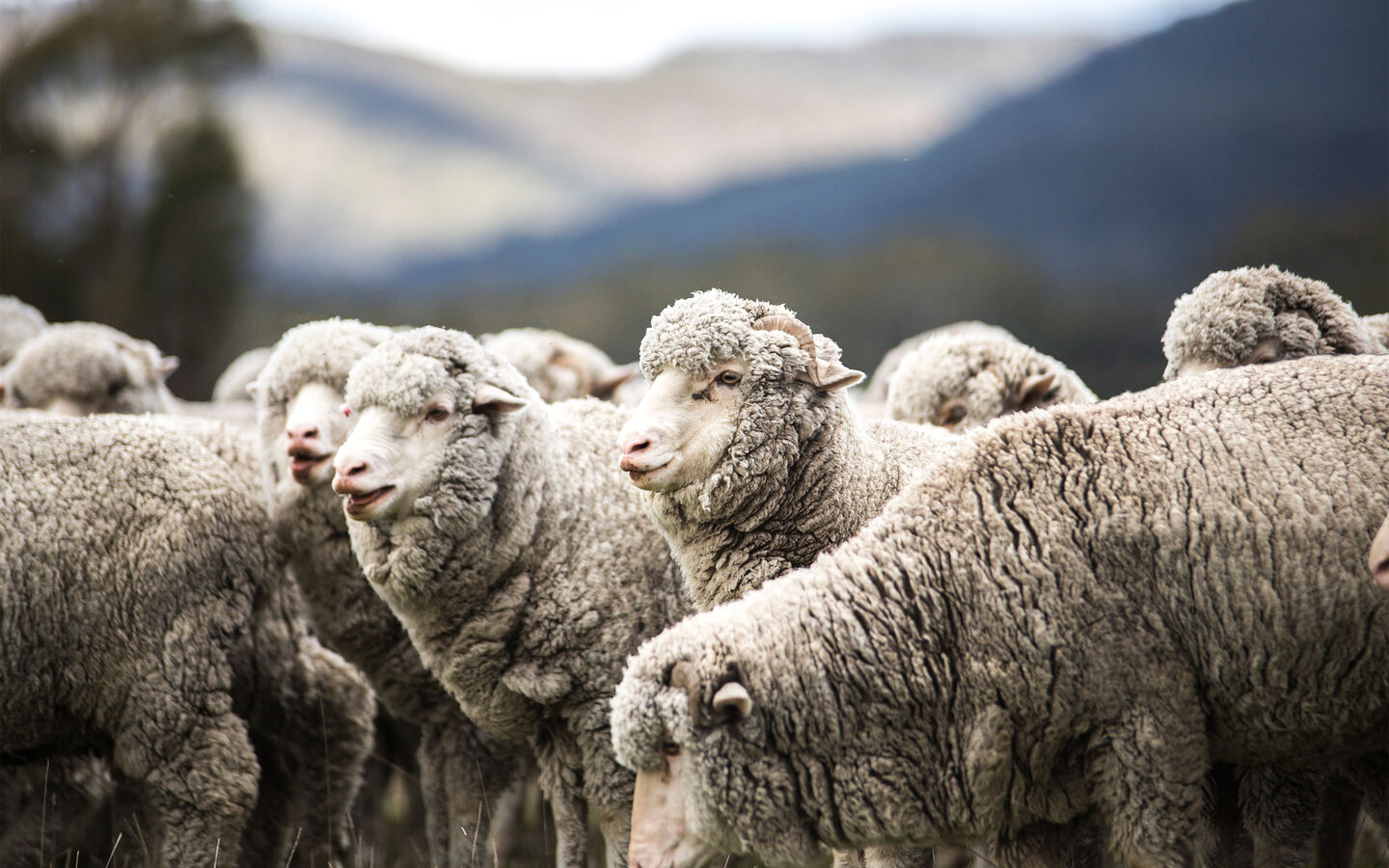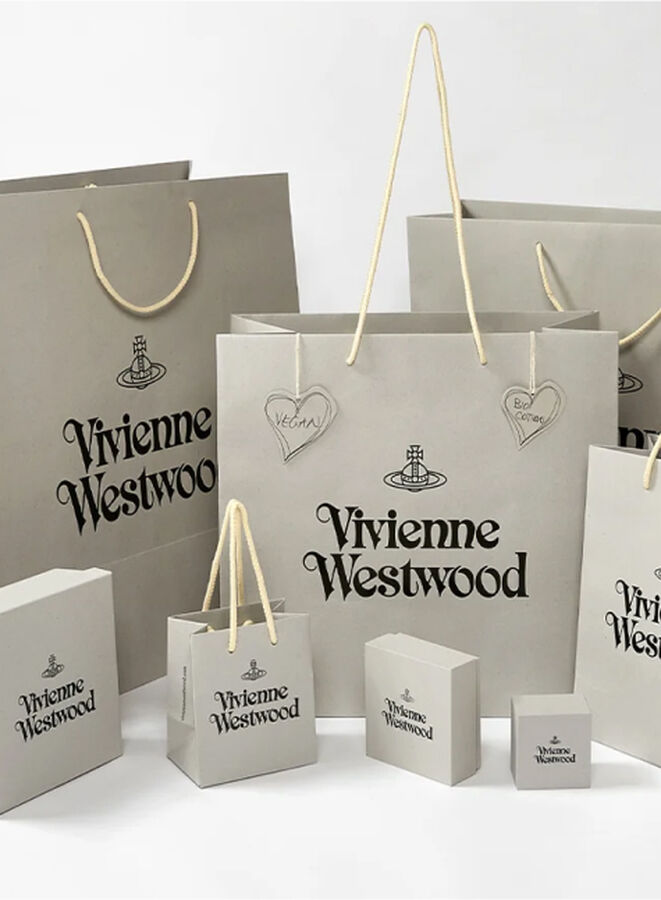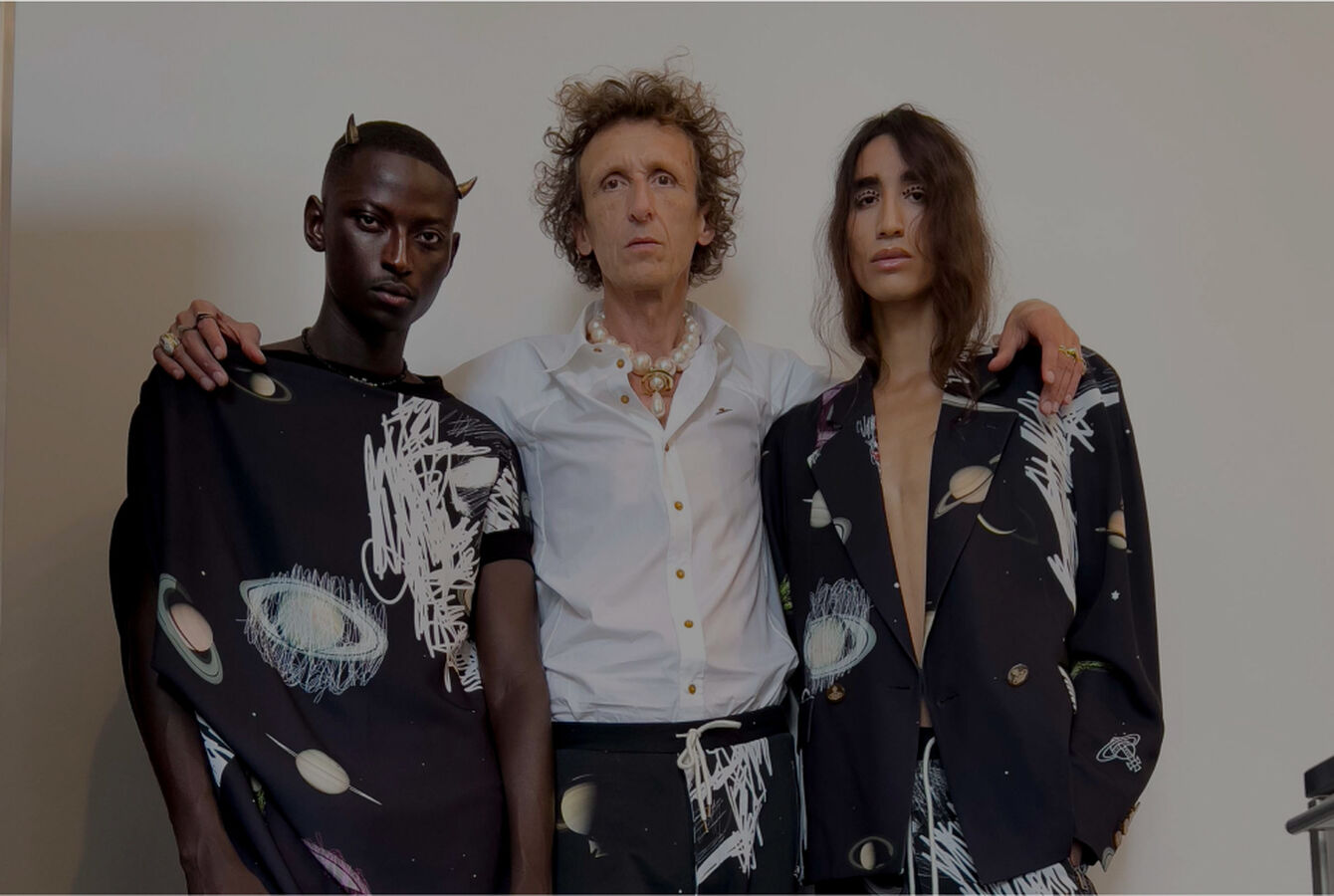Animal Sourcing Principles
We are building a modern brand. We strive to make our clothes with greater care and we are committed to designing with respect for people and planet. Responsible sourcing is at the heart of this commitment.
The Vivienne Westwood Group Animal Sourcing Principles apply to all animal derived materials used in products that we design and manufacture. They are put in place to uphold the highest animal welfare standards and we aim to implement them throughout our own business and in our supply chain.
These Principles apply to the capture, maintenance, breeding, raising, transportation, handling and slaughter of animals. They are mandatory for all suppliers to ensure that we do not knowingly use any material in our products that may inflict harm on animal welfare or have a negative impact on biodiversity.
It is our suppliers’ responsibility to ensure that all animal derived materials are sourced, processed and manufactured in accordance with these Principles and suppliers should be able to provide evidence demonstrating their compliance when required. We are always happy to provide support to help our suppliers understand and implement these Principles.
General Principles
1) We are committed to upholding the highest animal welfare standards, based on the internationally recognised ‘Five Freedoms’ of animal welfare;
- Freedom from hunger and thirst, by ready access to fresh water and a diet for full health and vigour.
- Freedom from discomfort, by providing an appropriate environment including shelter and a comfortable resting area.
- Freedom from pain, injury or disease, by prevention or rapid diagnosis and treatment.
- Freedom to express normal behaviour, by providing sufficient space, proper facilities and company of the animal’s own kind.
- Freedom from fear and distress, by providing conditions and treatment that avoid mental suffering.
2) We are committed to sustaining biodiverse ecosystems in areas we source from. This includes maintaining species populations of wild animals at sustainable levels and only sourcing material of animal origin from legal sources. We believe that local authorities’ use of robust scientific assessment methodologies that ensure sustainable population levels, such as the non-detriment finding methodology promoted by the CITES agreement or the IUCN Red List Categories and Criteria assessment, is critical to achieve this objective.
3) We believe that the capture, maintaining, breeding, raising, transportation, handling and slaughter of animals must be undertaken with minimal environmental impacts, and in compliance with applicable local animal welfare, human and labour rights and environmental laws and regulations as well as internationally accepted standards, for example World Organisation for Animal Health.
4) We believe that during maintaining, breeding, raising, and handling, animals should have freedom of movement, be housed in clean and secure conditions, and provided with food, water and care as well as have appropriate lighting, temperature, humidity, air circulation, ventilation and other environmental conditions. Further, animals should not be given food or liquid in a manner which may cause suffering or injury, and they should be treated in a manner respectful of its species’ nature and their physiological and ethological needs in accordance with established experience and scientific knowledge.
5) We believe that animals should not be transported in a way that is likely to cause injury or suffering to them, including that all necessary arrangements have been made in advance to minimise the length of the journey and to meet animals’ needs during the journey in line with internationally accepted standards for transportation of animals in air, at sea and on land.
6) We believe that animals should not experience suffering, pain or excitement during all stages of the process of slaughter, and that, as appropriate, effective stunning should be used in advance of slaughter.
Specific Principles for Animal Derived Materials
We do not permit the use of:
- Any endangered species; we will never knowingly source any species listed on the CITES (Convention on International Trade in Endangered Species of Wild Fauna and Flora) and IUCN (International Union for Conservation Red) lists of endangered species.
- Animal fur including rabbit hair (e.g. Angora), Mongolian lambs’ fur, Karakul (also referred to as Astrakhan/Broadtail/Persian lamb/Swakara/Krimmer) or any other hair from animals reared in cages for their hair.
- Leather or skin from exotic and wild caught animals including reptile skins, crocodile and alligator.
- Leather from cattle reared in the Amazon biome.
- Leather of kangaroo origin.
- Leather of horse origin.
- Hair from wild animals e.g. vicuña.
- Shell from vulnerable or endangered species.
We permit the use of the following under the conditions outlined below:
- Certain types of leather; cow, sheep, goat, pig, buffalo and fish.
- Virgin wool fibre and recycled wool fibre.
- Virgin cashmere fibre and recycled cashmere fibre.
- Yak fibre.
- Mohair.
- Feathers.
- Silk.
- Animal derived horn.
All leather must come from farms with high animal welfare standards, preferably accredited/certified by a recognised body.
Suppliers of Brazilian leather should provide assurances that hides used for our products are from cattle raised outside the Amazon Biome, due to deforestation issues in the Amazon rainforest.
Fish leather should have appropriate traceability in place as proof of being a by-product of the fish processing industry and originate from responsibly farmed sources, accredited/certified by a recognised body.
We aim to source all virgin animal hair from farms with high animal welfare standards, preferably accredited/certified by a recognised body.
Virgin animal hair used in our products must be gathered, clipped, shorn or combed/groomed only.
We encourage the sourcing of alternatives to virgin animal hair e.g. recycled wool and recycled cashmere, to minimise the risk of animal welfare and biodiversity issues.
We prefer the use of mulesing-free wool. Wool originating from Australia must be declared as ‘non-mulesed’ (NM) or ‘ceased-mulesed’ (CM) in National Wool Declaration (NWD) documentation. Australia is the only country where mulesing is currently practiced. Ideally, an RWS certification should be in place.
We aim to source virgin wool fibres from farms certified to the Responsible Wool Standard (a voluntary global standard that addresses the welfare of sheep and of the land they graze on).
Recycled wool fibres should be certified to the Global Recycled Standard (GRS) or Recycled Claim Standard (RCS) or equivalent standard.
We strive to limit the use of virgin cashmere and where possible source recycled cashmere, due to the negative environmental and social impacts caused by current cashmere production practices in Mongolia and other cashmere producing regions.
We source yak as a sustainable alternative to virgin cashmere fibres, due to biodiversity issues of goat overgrazing, leading to grassland degradation, desertification and economic hardship for herders.
We aim to source all South African mohair from farms with high animal welfare standards audited to the Sustainable Mohair Production Guidelines.
All feathers used in our products should come from fully traceable sources and from farms with high animal welfare standards.
We do not accept feathers produced using live plucking or force-feeding methods or from endangered/wild-caught birds.
Our silk comes from conventional sources. We are always looking for commercially viable, innovative alternatives to conventional silk, so that we can reduce the risk of animal welfare issues in processing. Increasingly, we source GOTS certified silk.
Horn used for trims should have appropriate traceability in place to prove being a by-product of the meat industry.




